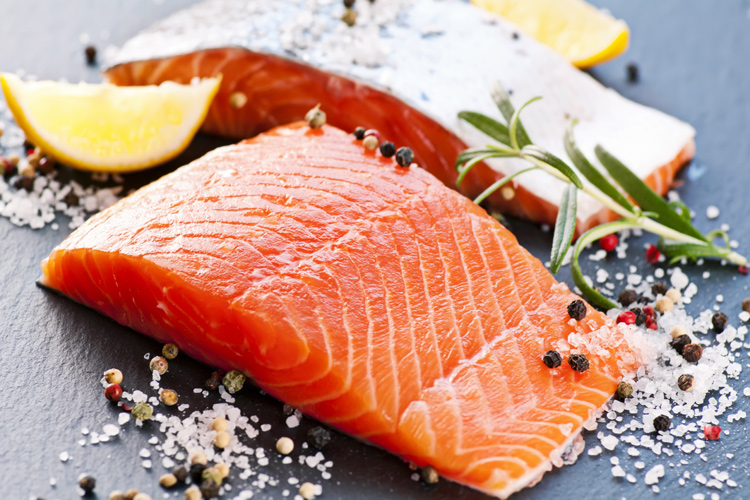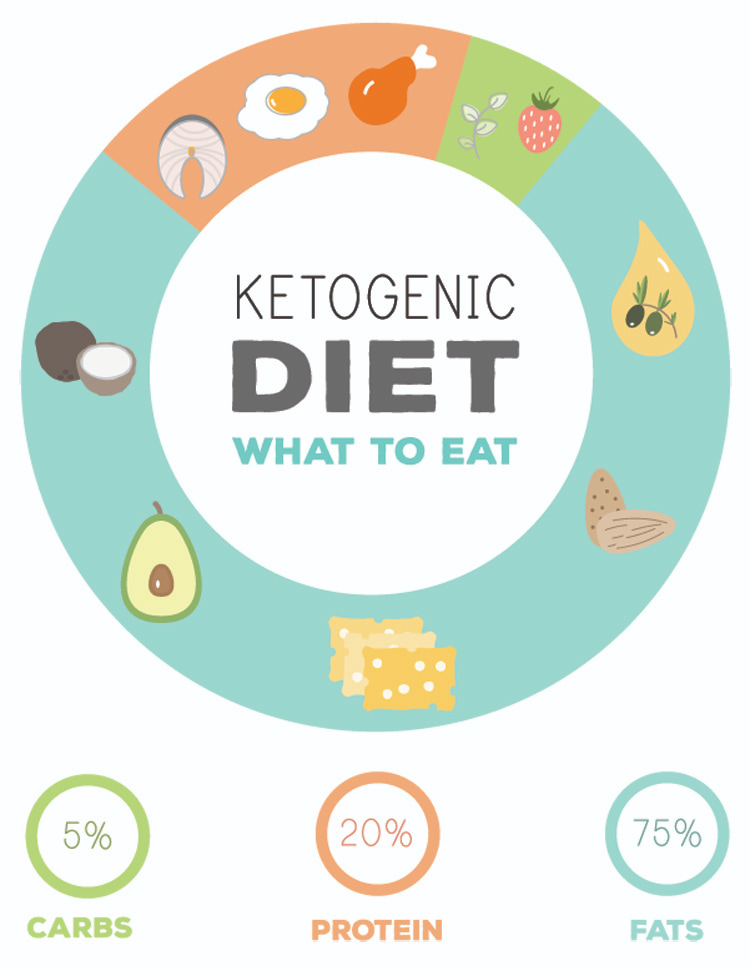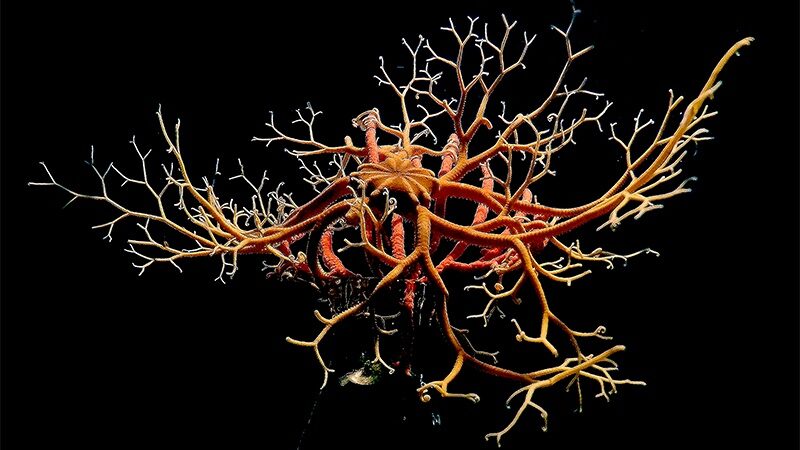A keto diet, also known as ketogenic diet, is a low-carb, gluten-free, high-fat nutrition program that improves the overall functioning of the human body.
In theory, it invites you to drastically reduce the consumption of carbohydrates like bread, cereals, pasta and grains, sweets, snacks, milk, yogurts, fruits, vegetables, and alcoholic drinks.
Simultaneously, the keto diet replaces these ingredients with fat, so that your body enters a metabolic state known as ketosis, providing additional energy to the brain in the form of ketones.
The diet is named ketogenic because it produces ketones.
As a result, your health system will become highly efficient at burning fat for energy.
A ketogenic diet will reduce the amount of sugar in your blood and lower insulin levels, shifting our body’s metabolism away from a carb-induced to a ketone and fat-based paradigm.
Keto diets are a great option for obese people, diabetics, elite sportsmen and sportswomen, and those seeking a metabolic health improvement.
It is similar to the Paleo diet and very close to the Atkins diet. And it’s not a temporary fix – it can be a long-term lifestyle.
Types of Keto Diets
There are four main types of ketogenic diets:
1. Standard Ketogenic Diet (SKD): a very low-carb, moderate-protein and high-fat diet, consisting of approximately 75 percent fat, 20 percent protein, and five percent carbs;
2. Cyclical Ketogenic Diet (CKD): a diet that involves periods of higher-carb refeeds – like five ketogenic days – followed by two high-carb days;
3. Targeted Ketogenic Diet (TKD): a diet that allows you to add carbs around workouts;
4. High-Protein Ketogenic Diet (HPKD): similar to an SKD, but with more protein, that is, 60 percent fat, 35 percent protein, and five percent carbs;
CKD and TKD are mainly adopted by high-performance athletes.
The average person should start with an SKD and eventually evolve to HPKD whenever he or she feels comfortable and confident.


Impacts on Health
Ketogenic diets have benefits against diabetes, cancer, epilepsy, and Alzheimer’s disease.
They will also help you lose weight, improve HDL cholesterol, and triglyceride levels.
People with prediabetes or Type 2 diabetes will notice significant improvements in health because a keto diet boosts insulin sensitivity and lead to fat loss.
Preliminary studies have also suggested that the adoption of a low-carb, high-fat diet reduces the risk of heart disease, slows the progression of Alzheimer’s disease, and leads to relevant reductions in seizures in epileptic children.
It has also been noted that a keto diet improved symptoms of Parkinson’s disease, had benefits in women with polycystic ovary syndrome (PCOS), reduced concussions and aid recovery after brain injury, and might help improve acne.
The Keto Food List
A ketogenic meal is based on the following foods and ingredients:
1. Meat: red meat, steak, turkey, chicken, bacon, ham, and sausage;
2. Oily Fish: tuna, salmon, mackerel and trout;
3. Eggs: Omega-3 and pastured eggs;
4. Grass-Fed Butter;
5. Unprocessed Cheese: cream, cheddar, mozzarella, blue or goat;
6. Seeds and Nuts: walnuts, almonds, chia seeds, pumpkin seeds, and flax seeds;
7. Healthy Cooking Oils: avocado oil, coconut oil, and extra virgin olive oil;
8. Avocados: freshly made avocados and whole avocados;
9. Low-Carb Vegetables: tomatoes, green veggies, peppers, and onions;
10. Salt, Pepper, and Herbs;


What Not to Eat
If you’re on this super-charged, low-carb keto diet, you should avoid or reduce the following high-carb foods:
1. Sugar: ice creams, candies, cakes, smoothies, fruit juice, and soda;
2. Grains and Starches: pasta, rice, cereal, and wheat-based foods;
3. Fruit: only strawberries are allowed;
4. Legumes and Beans: chickpeas, lentils, kidney beans, and peas;
5. Tubers and Root Vegetables: parsnips, carrots, sweet potatoes, and potatoes;
6. Low-Fat Foods;
7. Sauces and Condiments;
8. Saturated and Trans Fats;
9. Alcohol: beer, wine, cocktails;
10. Highly Processed Sugar-Free Foods;


Side Effects
Keto diets are safe because you are not consuming unhealthy foods and ingredients – only natural nourishments.
However, and because your body will need time to adapt to the changes, you might experience some initial side effects.
The most common consequence is the so-called keto flu.
For a few days, you may go through increased hunger, fatigue, headache, nausea, foggy brain, irritability, reduce physical performance, leg cramps, heart palpitations, digestive discomfort, constipation, and difficulty sleeping.
However, those symptoms will disappear within a few days.
Supplements
As your body gets used to a low-carb diet, it will need time to balance the water and mineral levels.
Initially, try to add extra salt to your meals, and eat until you’re full – don’t worry about calories.
And take a daily dose of sodium (3,000-4,000 mg), potassium (1,000 mg), and magnesium (300 mg) supplements.
You can add other supplements to your meals, including MCT oil, caffeine, exogenous ketones, creatine, and whey.





Recent Comments